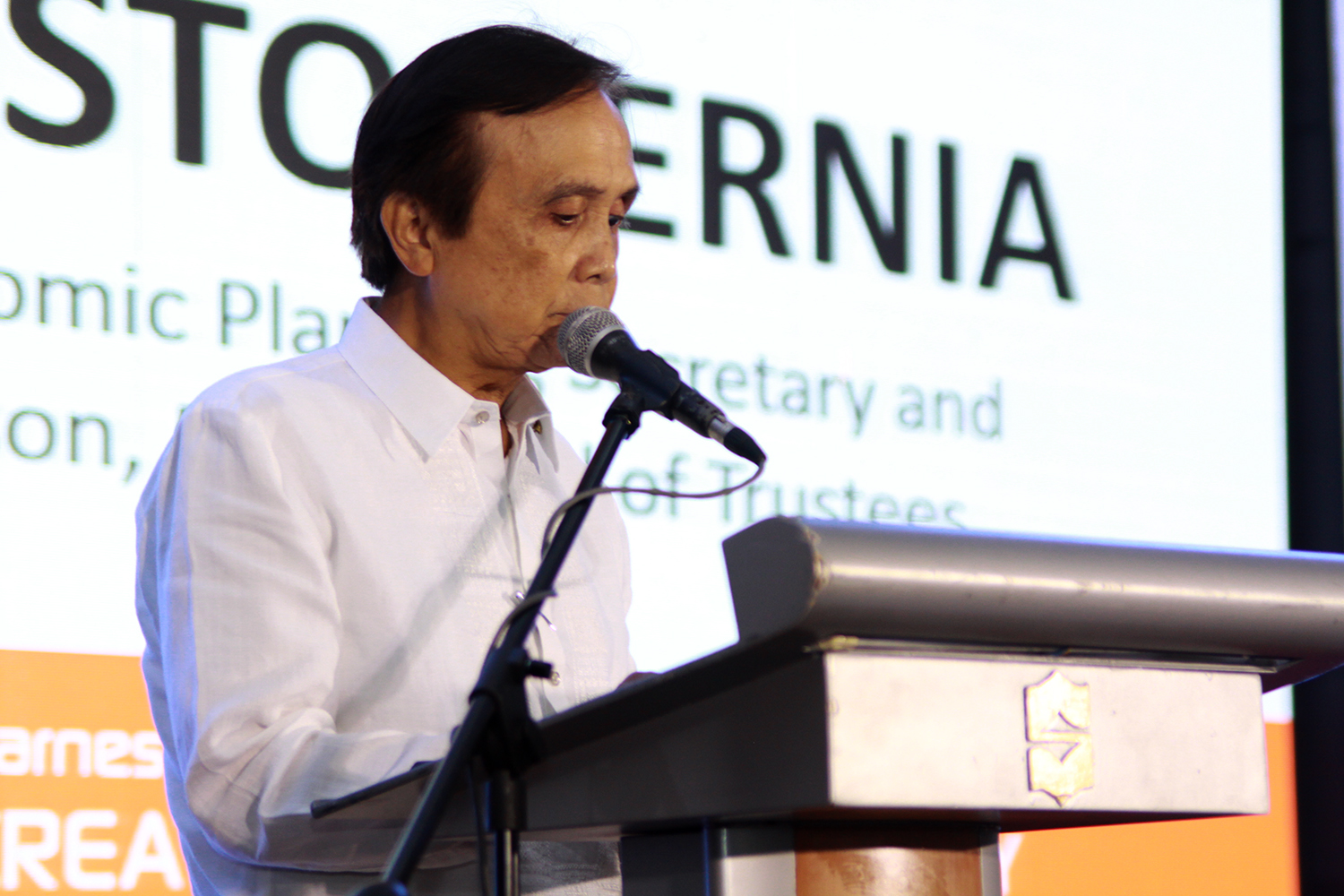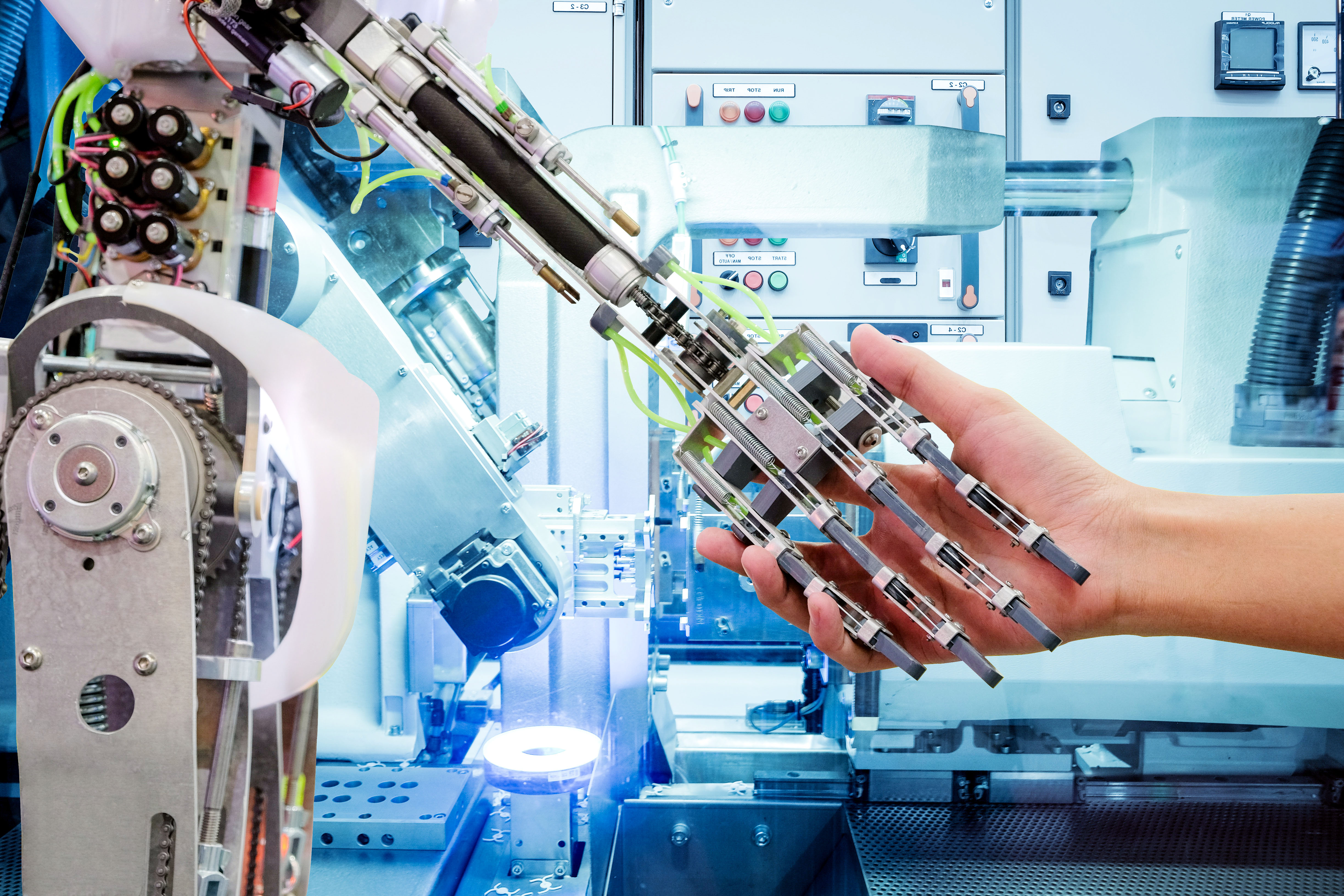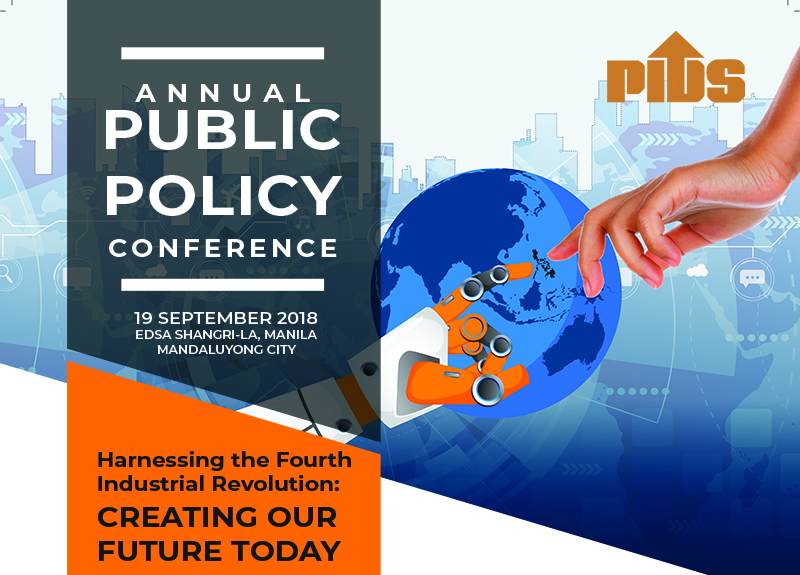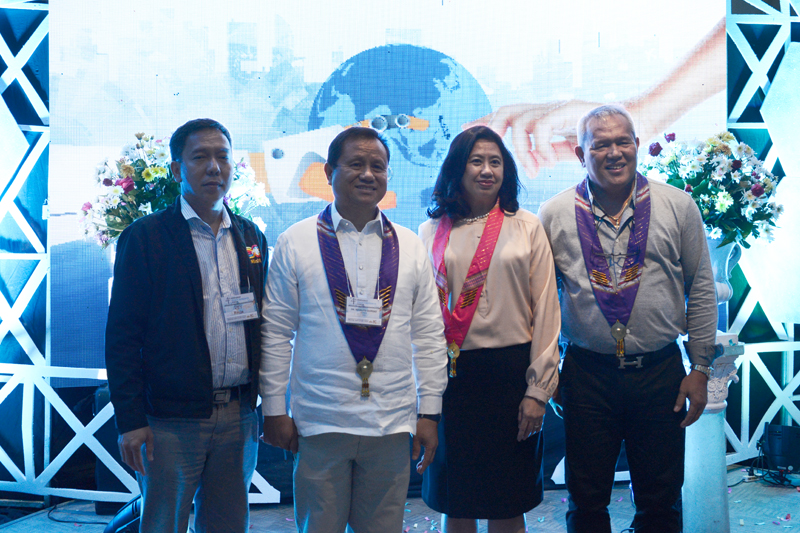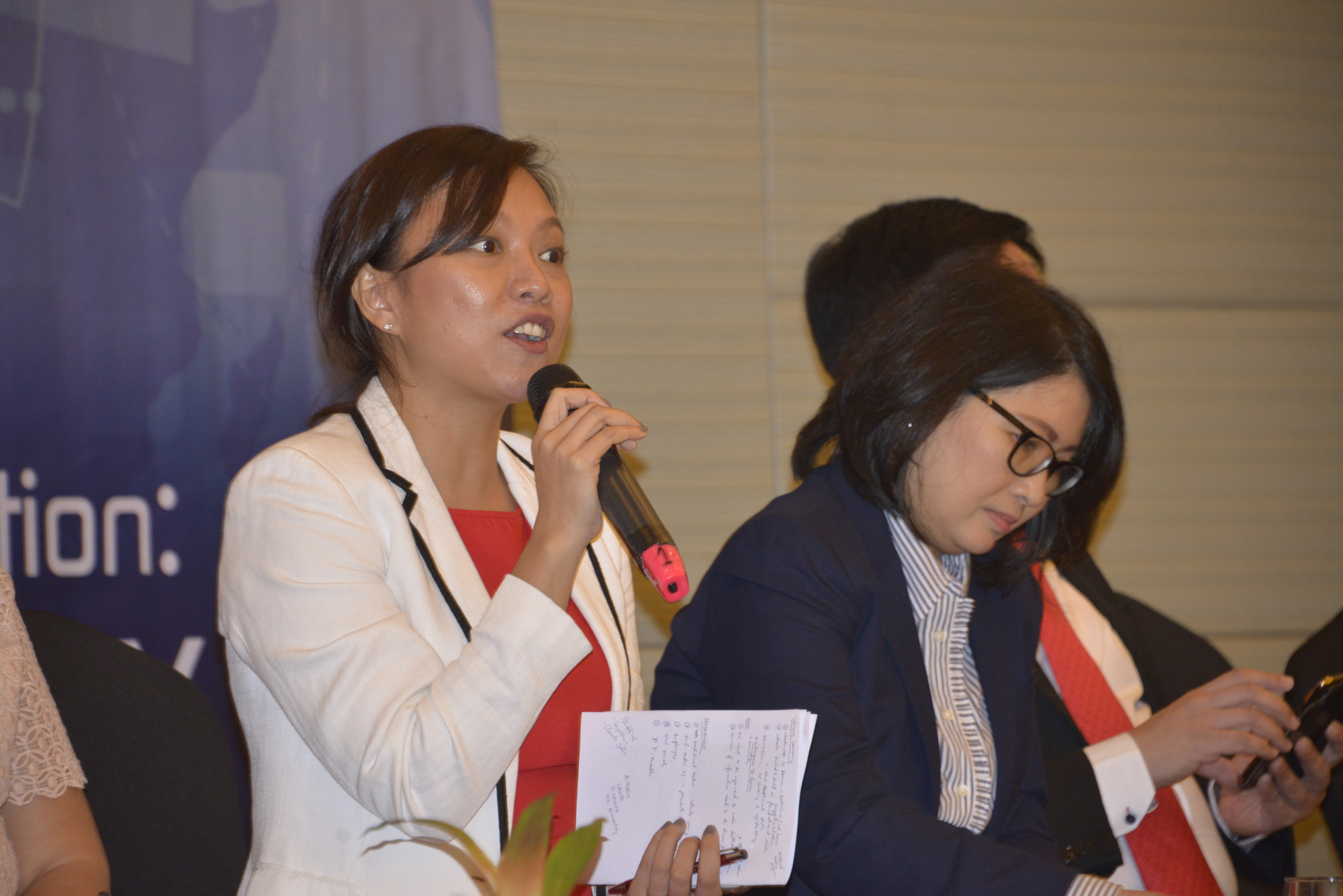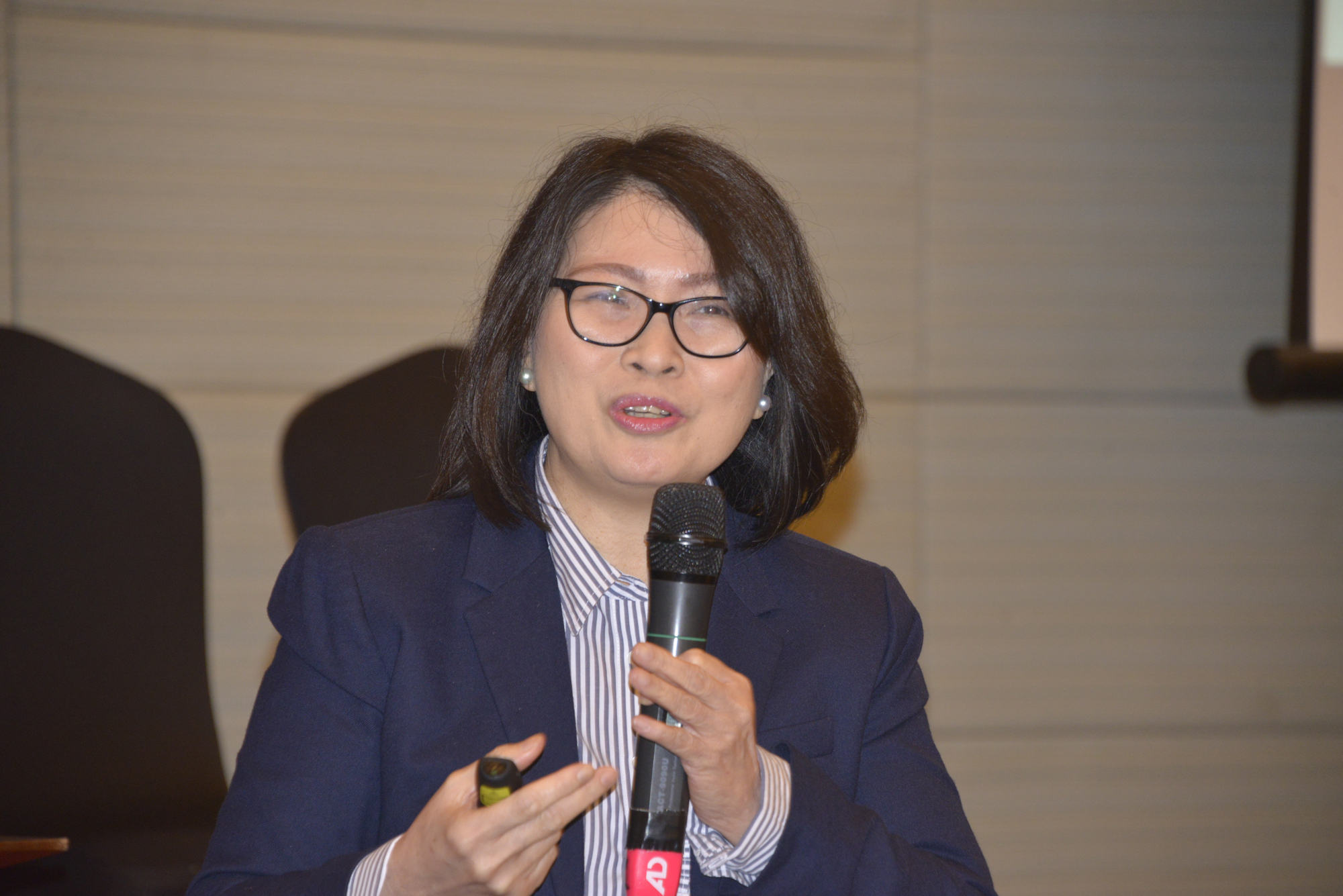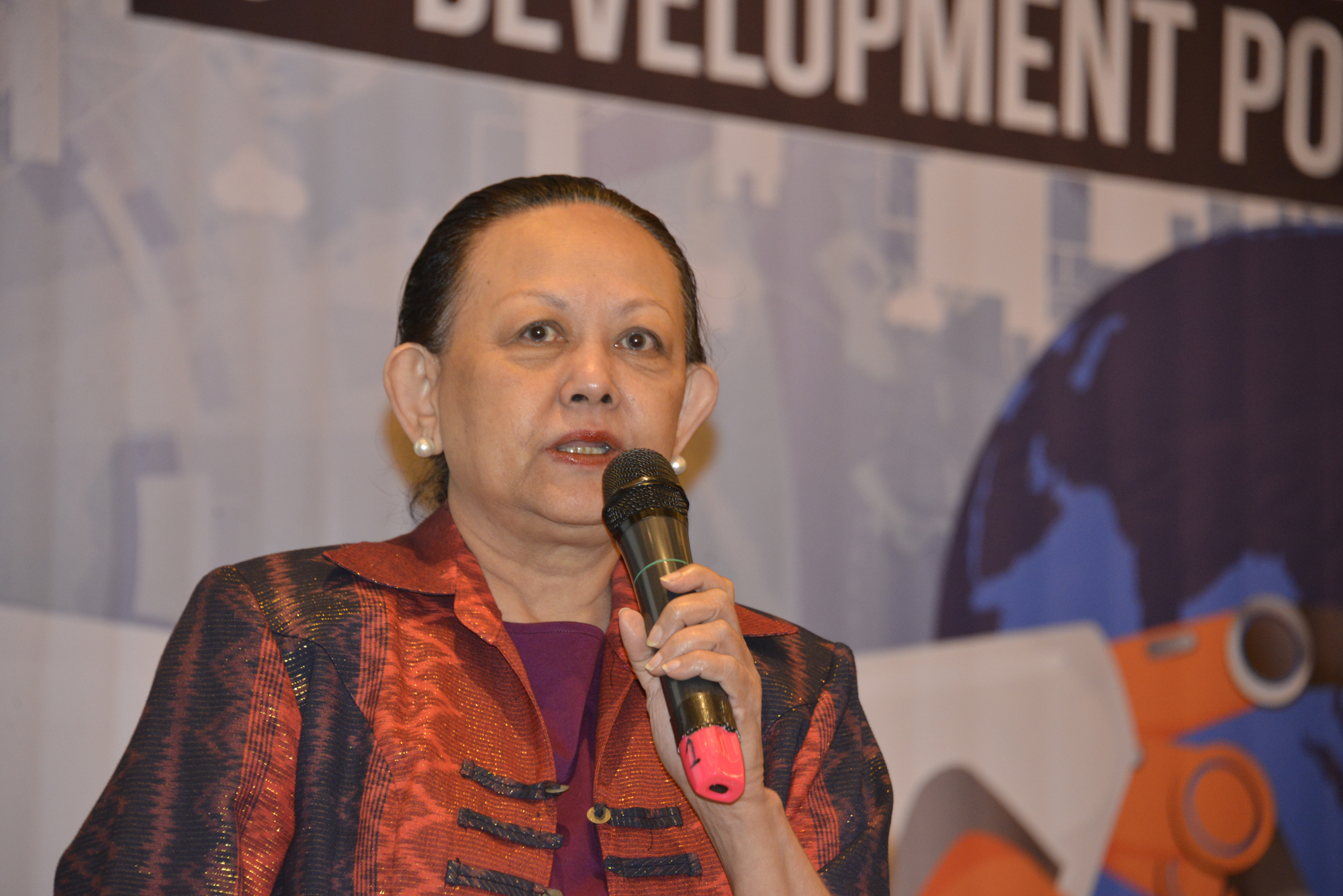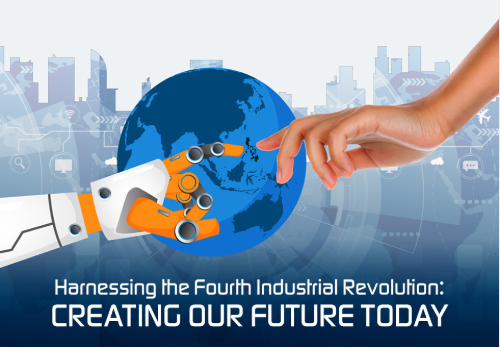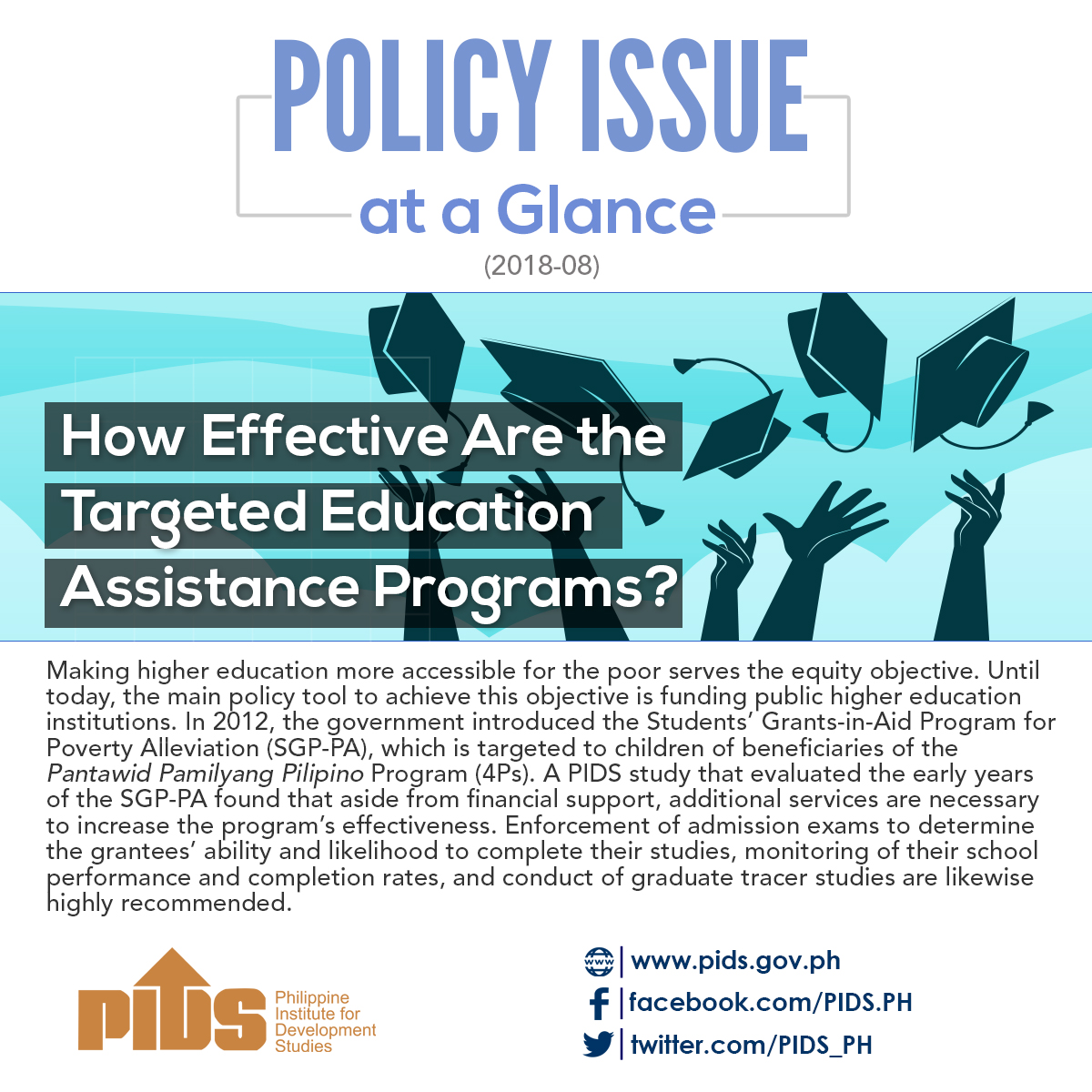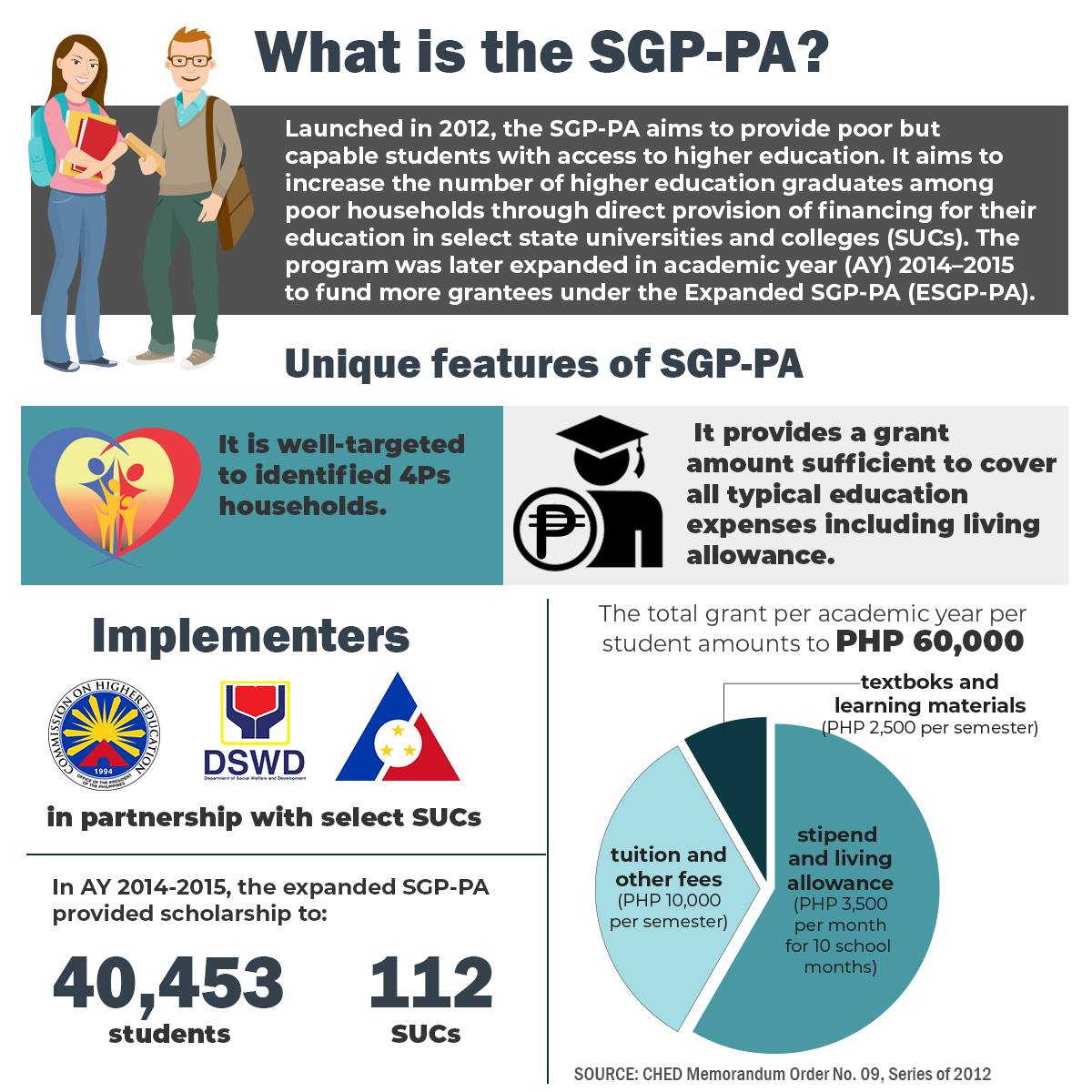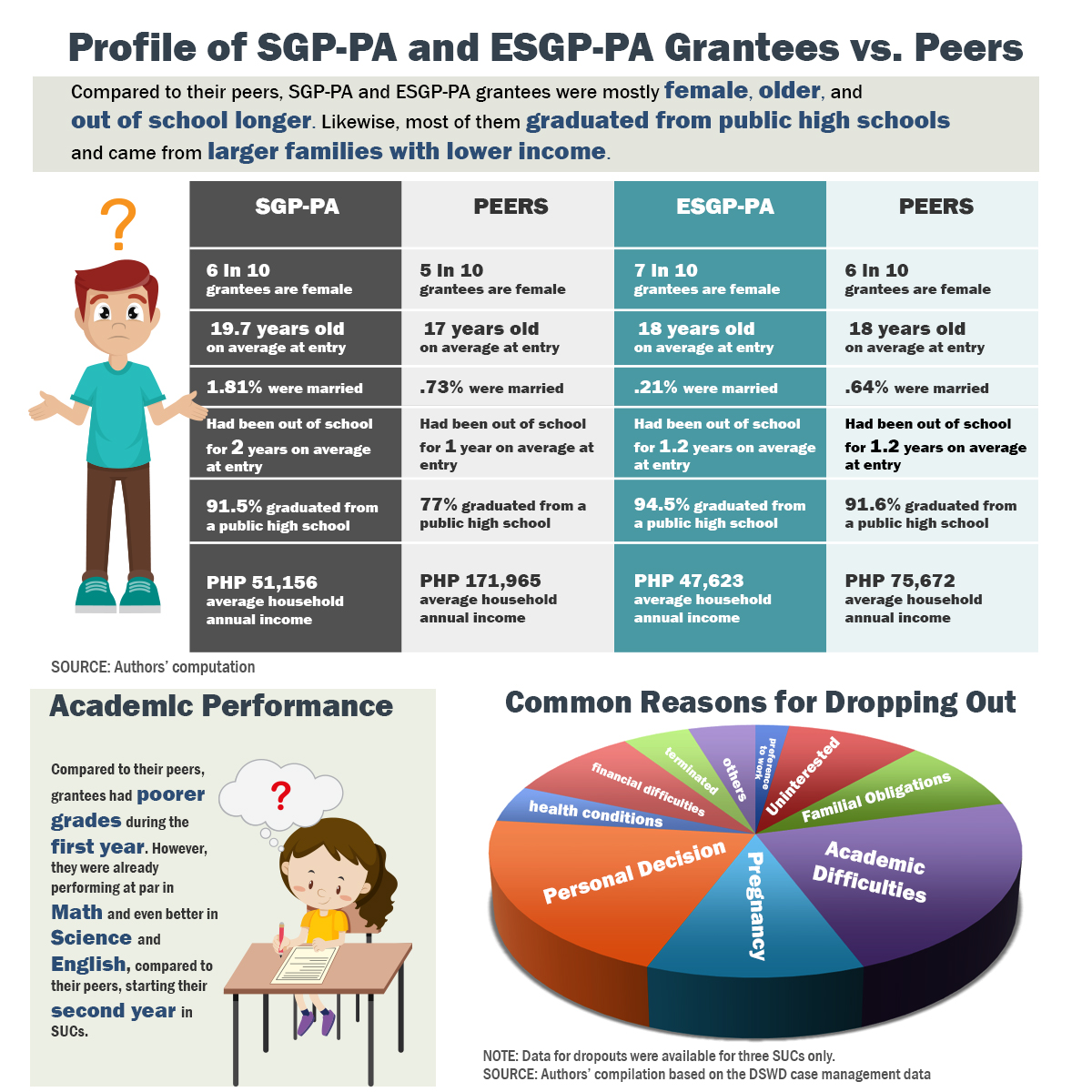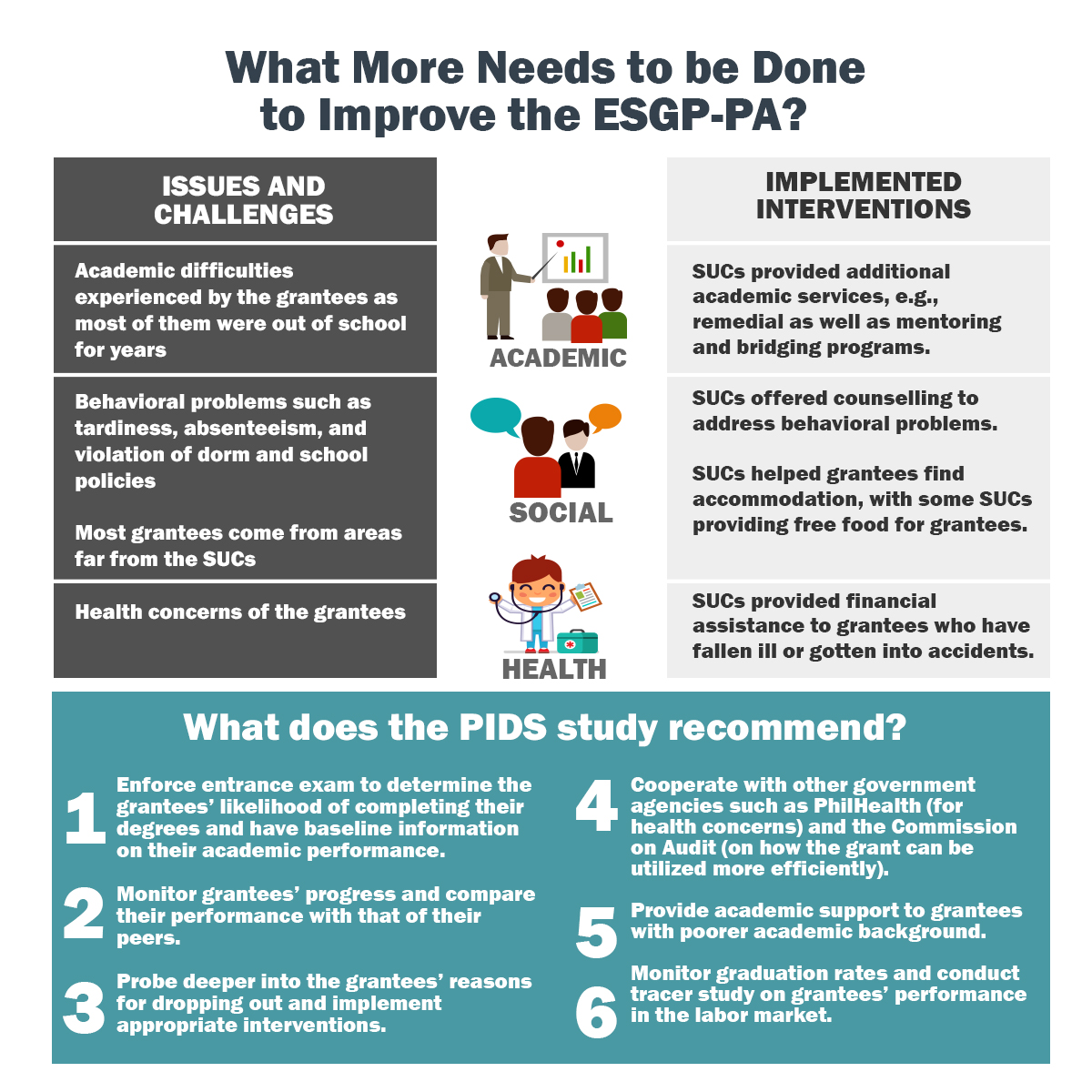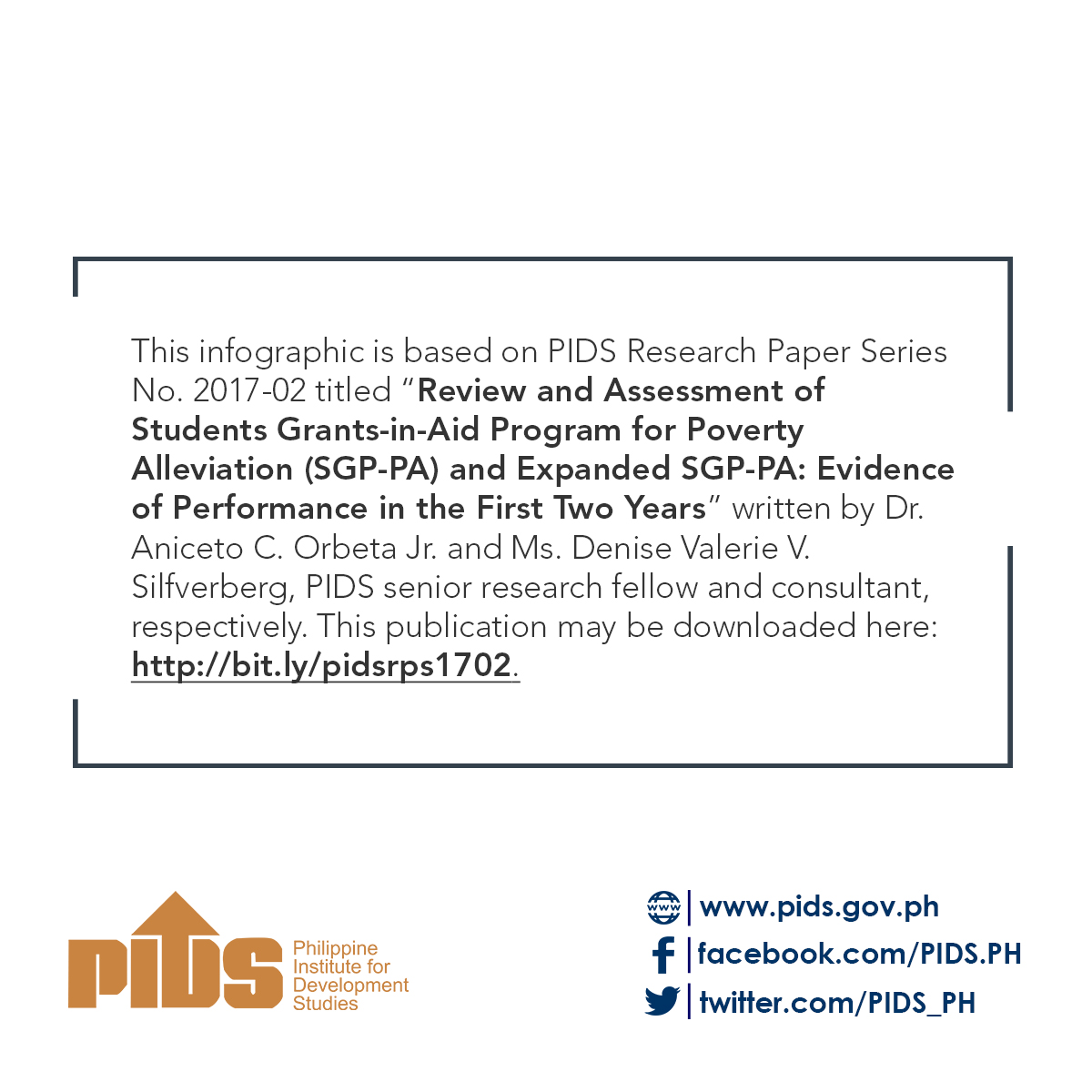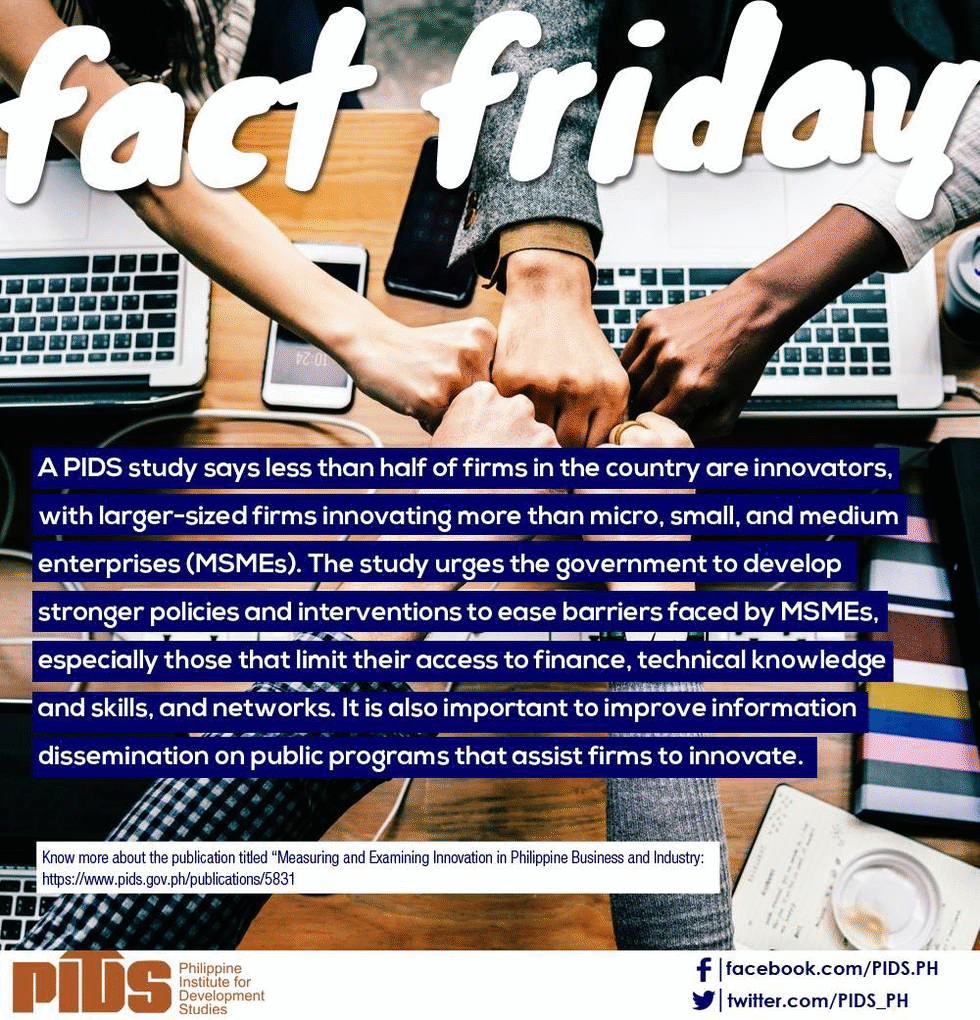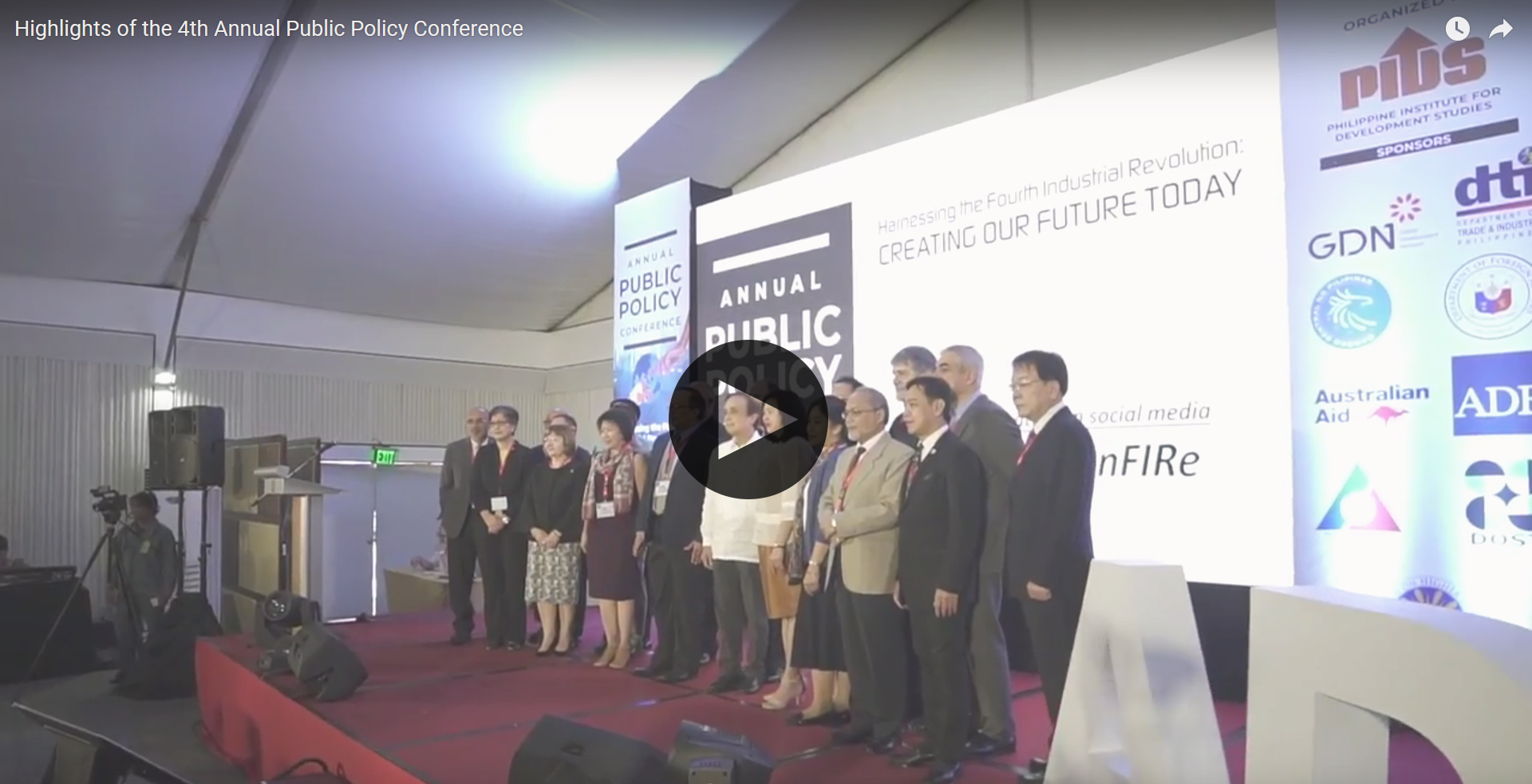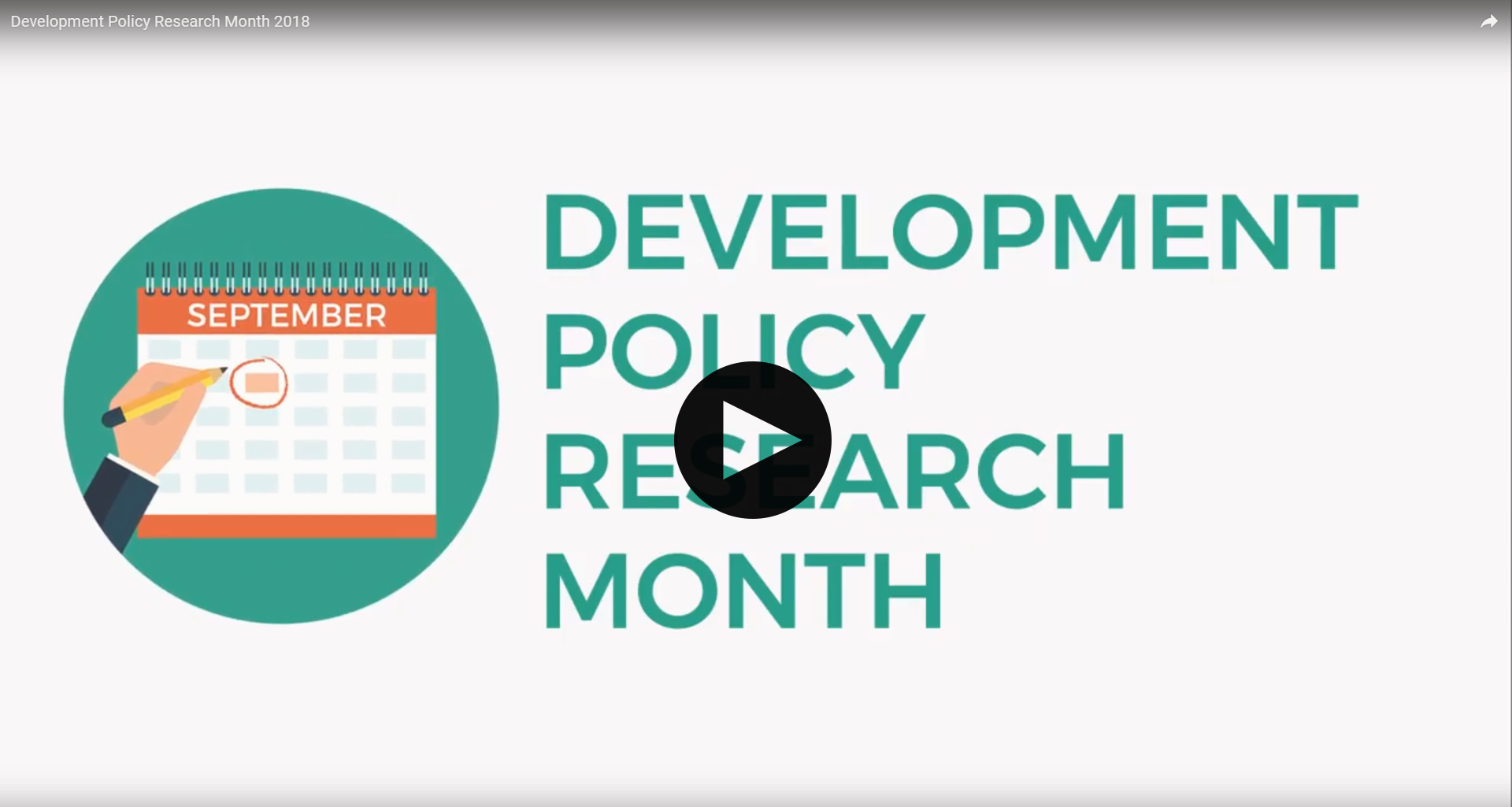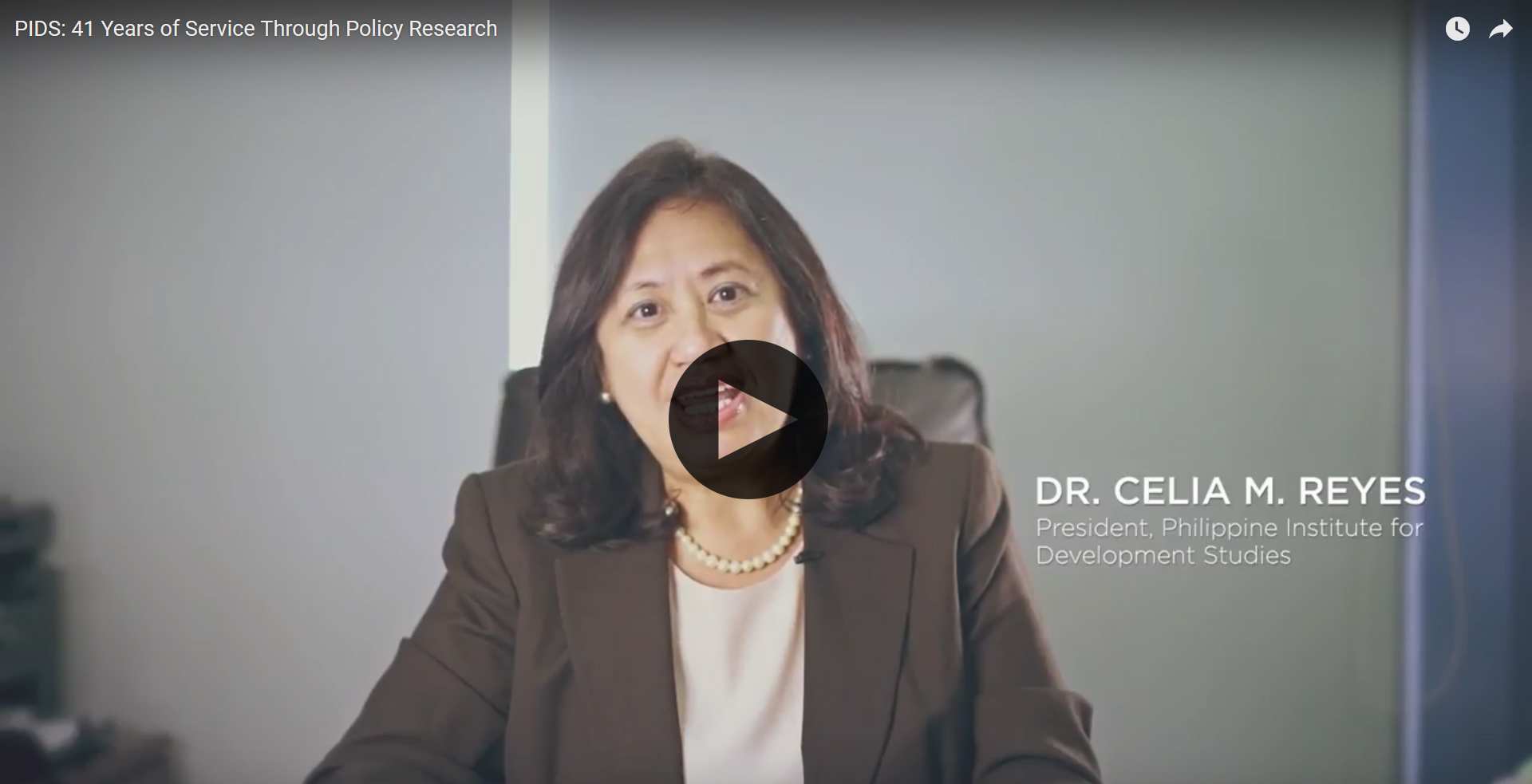Having trouble reading this email? View it in your browser. |
|||
 |
|||
|
|||
IN FOCUS: The Fourth Industrial Revolution: What It Means for Philippine Firms
The Fourth Industrial Revolution (FIRe), or Industry 4.0, has urged firms globally to capitalize on innovation to improve their productivity and competitiveness. In the Philippines, however, more than half of firms are still considered noninnovators. In a 2015 Survey of Innovation Activities (SIA) of Establishments led by Philippine Institute for Development Studies (PIDS) senior researcher Jose Ramon Albert, only 42.9 percent of the local firms were found to be innovation active, with larger-sized firms innovating more than micro, small, and medium enterprises (MSMEs). Among local firms, innovation activity was lowest among microenterprises at 33.9 percent. MSMEs account for 99.6 percent of the total establishments in the country. The same survey also identified lack of funds as the most significant barrier hindering firms from engaging in innovation to upgrade their businesses. This was true for the 28.1 percent of non-innovating MSMES and even among 25 percent of large firms that are innovation active. Innovation, however, does not have to be bounded by cost factors. PIDS researchers Connie Dacuycuy and Lora Kryz Baje noted that firms that are limited in resources can opt to implement one type of innovation at a time to improve business productivity at a lesser cost. Meanwhile, the authors suggested that larger firms venture into more complex innovation strategies to reap greater returns. Aside from cost factors, there is also insufficient technologically-literate workforce among firms in the country. In the PIDS survey, more than 1 in every 8 MSMEs lacks qualified personnel to perform technology-related jobs. In another study, PIDS consultant Elmer Dadios and his research team confirmed this, citing the Philippines' low ranking in terms of available human resources engaged in science and technology (S&T) globally. This is despite being the top exporter of information and communications technology services among members of the Association of Southeast Asian Nations. While larger firms establish formal research and development (R&D) divisions to address their innovation needs, this is a major concern for MSMEs as they do not have the capacity to conduct their own R&D due to lack of funds. In a 2017 PIDS study that examined the innovation activities of Philippine garment firms, however, authors Fatima del Prado and Maureen Ane Rosellon observed that local firms have developed a mechanism to carry out innovation activities even without a formal R&D unit. According to the study, these firms thrive by hiring skilled individuals for specific product development activities, particularly requested by their clients. These issues on funding for innovation and the shortage of qualified S&T manpower to perform technology-related jobs are only some of the factors that should be addressed to improve the country’s global technology adoption rate—currently at 40th among 139 countries in the 2016 Global Information Technology Report of the World Economic Forum. The FIRe, although creates opportunities for growth, also presents new threats to the Philippine business landscape. It is imperative that the government, the academe, and the industry work synergistically to resolve uncertainties as the country embraces the changes emerging from this revolution. The government, for instance, must focus on accumulating various types of capital and investments to support rapid technological changes, particularly for the noninnovators including the MSMEs. Education and training systems must also be strengthened to develop a better educated workforce and to build a trainable human resource. PIDS studies also suggest establishing universal social protection programs to safeguard those that may be adversely affected by business and employment disruptions. Strengthening linkage between the industry and the academe is also found to be valuable in addressing technological gaps. Given the changing technological landscape, the government also needs to rethink its regulatory framework. It should make it more open, flexible, and less burdensome for new businesses and investments. PIDS dedicates this year’s Development Policy Research Month (DPRM) to the discussion of the opportunities and issues surrounding the FIRe in the Philippines. With the theme “Harnessing the Fourth Industrial Revolution: Creating Our Future Today”, the Institute aims to shed light on the potential impacts of automation and other innovations in science and technology on the country’s economic competitiveness and growth. The 4th Annual Public Policy Conference (APPC)—the main and culminating activity of the DPRM—focuses on the same theme to promote awareness and understanding of the FIRe and encourage everyone to be proactive in preparing for and adapting to the changes that come along with this fourth major industrial era. Visit the DPRM website (https://dprm.pids.gov.ph/) and the 4th APPC website (https://appc.pids.gov.ph) for details. You may also access PIDS studies on technology and innovation from the Socioeconomic Research Portal for the Philippines. Simply type ‘innovation’, ‘technology’, ‘fourth industrial revolution’ ‘digital economy’, and other relevant keywords in the Search box. |
September 4, 2018, 10AM–1PM September 11, 2018, 8AM–5PM September 19, 2018, 9AM–5PM
-----------------------------------------------
The Philippine Journal of Development is a professional journal published by the Philippine Institute for Development Studies. It accepts papers that examine key issues in development and have strong relevance to policy development. As a multidisciplinary social science journal, it accepts papers in the fields of economics, political science, public administration, sociology, and other related disciplines. It considers papers that have strong policy implications on national or international concerns, particularly development issues in the Asia-Pacific region. CLICK HERE for the guidelines in the preparation of articles. Submissions and inquiries may be sent to PJD@mail.pids.gov.ph. |
||
BOOK PIDS Book 2018-02: Critical Perspectives on Federalism for Regional Development Since the beginning of the Duterte administration, federalism has been espoused as an alternative to the centralized system of governance in the Philippines. To promote an intelligent discourse on this issue, the Philippine Institute for Development Studies (PIDS) dedicated the Third Annual Public Policy Conference (APPC) 2017 to the discussion of federalism. The 2017 APPC specifically focused on the fiscal design and political feasibility of federalism in the country, as well as state boundaries under a federal republic. In this volume, which is a compilation of the papers presented during the Third APPC, the PIDS hopes that the recommendations raised in these proceedings will serve as a practical resource for the public and policymakers alike, especially as they make informed decisions regarding the adoption of federalism in the Philippines. Click here to download the book.
RESEARCH PAPER SERIES RPS 2018-02: Measuring and Examining Innovation in Philippine Business and Industry Innovation involves implementing new or significantly improved goods and services, production processes, marketing, or organizational methods for adding value. The measurement of innovation provides a mechanism for benchmarking national performance, as well as allows a better understanding of its relation to economic growth. Further, examining determinants and bottlenecks to innovation among firms provides inputs to mainstreaming of policies on innovation. In this paper, the results of the 2015 Survey of Innovation Activities conducted by the Philippine Institute for Development Studies are described and discussed. Survey results suggest that less than half of the firms in the country were innovators, with larger-sized firms innovating more than the micro, small, and medium establishments. The most common innovative behavior among firms was process innovation. Effects of innovation were observed to be largely customer-driven. Firms identified cost factors as the most important barrier to innovation. Knowledge and cooperation networks for innovation need strengthening. Government support and its role on innovation was also limited. Firms hardly accessed technical assistance from the government and research institutions. Similarly, firms have limited cooperation with the academe in terms of innovation activities. Firms cooperated more internally with establishments within their enterprise, their customers, and suppliers for their innovation activities. Given these issues, the government needs to have a champion for developing stronger policies and interventions to support and encourage innovation. It is also important to improve information dissemination regarding public programs available to assist firms to pursue innovation. Networking, linkages, and collaboration among the government, industry associations, and universities and research institutions also require further enhancement. Click here to download the publication.
DISCUSSION PAPERS DP 2018-13: Effect of Supply Chain Integration on the Business Performance and Competitiveness This study aims to determine the effect of supply chain integration on the business performance and competitiveness of Philippine small and medium enterprises. A survey of 384 small and medium enterprises was done and structural equation modeling was used to test the hypothesis. Results show that internal integration strongly influences (p<0.001) both business performance (growth) and competitiveness of small and medium enterprises. Moreover, customer integration influences business performance (growth). It also mediates the effect of supplier and customer integration in business performance (growth) and competitiveness of small and medium enterprises. Click here to download the paper. DP 2018-12: Duration of Export Relationships of Philippine MSMEs Within the framework of the Asia-Pacific Economic Cooperation (APEC) Boracay Action Agenda and the ASEAN Strategic Action Plan developed by its members to assist micro, small, and medium enterprises (MSMEs) to reach internationalization, the study examines the survivability of Philippines MSMEs' exports to select countries. The analysis is based on the survival analysis model of Besede and Prusa (2006a; 2006b) and Besede and Prusa (2008). Using the Kaplan Meier estimator model in both the MSME exports and the total trade data in documenting the survival rate of goods and duration of Philippine exported products, the study finds that most export relationships of the Philippines are brief, contrary to conventional trade theories which suggest that most trade relationships will be long-lived. Also, MSMEs, on average, account for a more significant number of export relations than large establishments. Furthermore, among MSMEs, it is the medium-sized firms that constitute the majority of export relations over different durations. Click here to download the paper. DP 2018-11: Preparing the Philippines for the Fourth Industrial Revolution: A Scoping Study Technological breakthroughs and the interplay of a number of fields, including advanced robotics, artificial intelligence, nanotechnology, neurotechnology, data analytics, blockchain, cloud technology, biotechnology, Internet of Things, and 3D printing, have ushered in the Fourth Industrial Revolution (FIRe). Philippine industries have already been adopting these technologies, although in varying degrees of diffusion. The extent of the potential benefits that may be realized from the FIRe will depend on the country's ability to adapt to the global disruptions that come along with the industrial revolution. The country needs to establish a solid foundation for sustained learning and to accumulate various types of capital, while progressively and systematically closing existing technological gaps. Both the public and private sectors need to pay attention to the minuscule investment going to research and development. Concomitantly, the government must have an informed view on how to improve its deployment efficiency. Trade openness, competition in key industries, labor market flexibility, human capital development, and an established social protection system, among others, must also be ensured to catch up with and benefit from the technological revolution. Click here to download the paper. | |||
Socioeconomic Planning Secretary Ernesto Pernia highlighted the importance of redefining the role of government in the Fourth Industrial Revolution (FIRe) or Industry 4.0 era so that innovation activities are encouraged and not stifled.
The Philippines should not be afraid to embrace both innovation and automation in the face of the Fourth Industrial Revolution (FIRe).
Every September, the Philippine Institute for Development Studies (PIDS) holds the Annual Public Policy Conference (APPC) as the main and culminating activity of the Development Policy Research Month (DPRM), a nationwide celebration to promote the importance of policy research in the formulation of policies, programs, and projects
in government.
State think tank Philippine Institute for Development Studies (PIDS), Mindanao Development Authority (MinDA), and the University of Science and Technology of Southern Philippines (USTP) held a policy research forum on September 11 that focused on the Fourth Industrial Revolution (FIRe) and its potential impacts on Mindanao.
More women than men are at risk of being affected by the rise of the fourth industrial revolution (FIRe) in the Philippines.
The Philippine agriculture is already revolutions behind the absorption of technology, turning it into a laggard in a number of ways, especially in terms of productivity.
Where is Bangsamoro in the Fourth Industrial Revolution (FIRe)?
How prepared is the Philippines for the Fourth Industrial Revolution (FIRe), also known as Industry 4.0? Based on the World Economic Forum’s (WEF) Readiness for the Future of Production Report 2018, the Philippines has a low level of readiness for future production, characterized by weak performances in terms of technology and innovation, human capital, and institutional framework, among others.
If the Philippines wants to sustain its economic growth in the past years, it should be able to keep up with the age of disruptive technologies or the so-called “Fourth Industrial Revolution (FIRe)”, also known as Industry 4.0.
To keep up with the rapid pace of technological advancement, state think tank Philippine Institute for Development Studies (PIDS) enjoins legislators in the country to prioritize policies that will harness the benefits as well as reduce the adverse effects of the Fourth Industrial Revolution (FIRe). |
|||
POLICY ISSUE AT A GLANCE How Effective are Targeted Education Assistance Programs? Making higher education more accessible for the poor serves the equity objective. Until today, the main policy tool to achieve this objective is funding public higher education institutions. In 2012, the government introduced the Students Grants-in-Aid Program for Poverty Alleviation (SGP-PA), which is targeted to children of beneficiaries of the Pantawid Pamilyang Pilipino Program (4Ps). A PIDS study that evaluated the early years of the SGP-PA found that aside from financial support, additional services are necessary to increase the program's effectiveness. Enforcement of admission exams to determine the grantees ability and likelihood to complete their studies, monitoring of their school performance and completion rates, and conduct of graduate tracer studies are likewise highly recommended. This infographic is based on PIDS Research Paper Series No. 2017-02 titled Review and Assessment of Students Grants-in-Aid Program for Poverty Alleviation (SGP-PA) and Expanded SGP-PA: Evidence of Performance in the First Two Years written by Dr. Aniceto C. Orbeta Jr. and Ms. Denise Valerie R. Silfverberg, PIDS senior research fellow and consultant, respectively.
To view in actual size, visit the PIDS website or the PIDS Facebook page.
FACT FRIDAY Every Friday, PIDS releases nuggets of research results culled from different PIDS studies. Here are the latest #PIDSFactFriday issues. Like us on Facebook for more #PIDSFactFriday issues. |
|||
Click here to know more about the DPRM in this video.
Click here to know more about who we are and what we do at the Institute.
|
|||
Need help? Have feedback? Feel free to contact us. © 2018 Philippine Institute for Development Studies.
|
|||
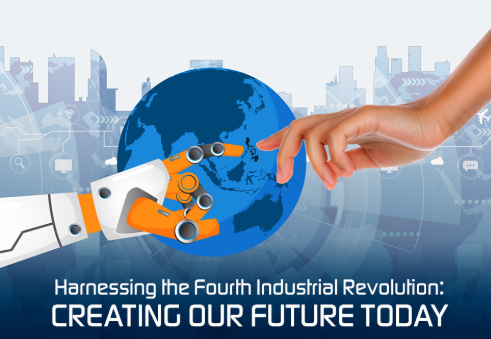
.jpg)
